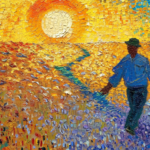Our article that I quoted in my earlier post is now live.
There is an enduring disunity among Ethiopian elites regarding its history and future. Informed by its long, and contentious multi-ethnic history, and fueled by recent shifts in the political landscape in the country, a war of narratives has been reignited. As we explain in this article, the narrative war is fought between adherents of what we have termed “Pan-Ethiopianists” and “Ethno-nationalists”. The spillover effect of this increasingly toxic debate has had a negative impact on the lives of everyday Ethiopians and continues to destabilize the country. Indeed, narratives surrounding ethnic identities and ethnic politics in Ethiopia is the one thing that demands the most attention. As it stands today, the way and environment in which the debate is occurring, and the actors involved in it indicates we may be approaching a threshold that cannot be uncrossed.
[…]
To use Edward Said’s words, “aggrieved primal innocence”- owing to past or present perceived or actual violence – or a sense of self-righteousness are the least of positions to start a debate on the history as long and contentious as Ethiopia’s and a process of nation-building, which has been made even more complicated with the divisive ethnic politics of the last 28 years. Nonetheless, even if we disagree on where we started and how we got here, we could at least agree on where we are heading. To be sure, it may still be argued that we would not know where we are heading if we do not know where we started. That may very well be the dilemma we might have to learn to live with and, even the right place to start the debate. But denialism, lack of empathy, and cancel-culture are the last traits we should carry into this debate not only because people’s lives, but also the future of Ethiopia as a state, are at stake. Good faith debate based on shared facts and shared goals are required if the historical Ethiopia is to survive another century.





Comments are closed.